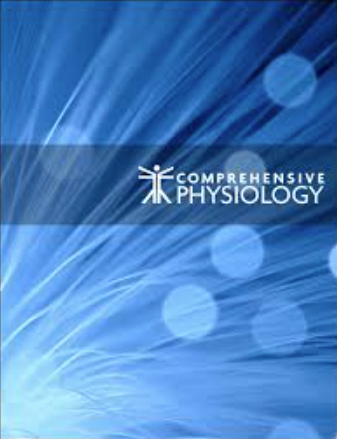求助PDF
{"title":"Polycystic Ovary Syndrome and the Neuroendocrine Consequences of Androgen Excess.","authors":"Mauro S B Silva, Rebecca E Campbell","doi":"10.1002/cphy.c210025","DOIUrl":null,"url":null,"abstract":"<p><p>Polycystic ovary syndrome (PCOS) is a major endocrine disorder strongly associated with androgen excess and frequently leading to female infertility. Although classically considered an ovarian disease, altered neuroendocrine control of gonadotropin-releasing hormone (GnRH) neurons in the brain and abnormal gonadotropin secretion may underpin PCOS presentation. Defective regulation of GnRH pulse generation in PCOS promotes high luteinizing hormone (LH) pulsatile secretion, which in turn overstimulates ovarian androgen production. Early and emerging evidence from preclinical models suggests that maternal androgen excess programs abnormalities in developing neuroendocrine circuits that are associated with PCOS pathology, and that these abnormalities are sustained by postpubertal elevation of endogenous androgen levels. This article will discuss experimental evidence, from the clinic and in preclinical animal models, that has significantly contributed to our understanding of how androgen excess influences the assembly and maintenance of neuroendocrine impairments in the female brain. Abnormal central gamma-aminobutyric acid (GABA) signaling has been identified in both patients and preclinical models as a possible link between androgen excess and elevated GnRH/LH secretion. Enhanced GABAergic innervation and drive to GnRH neurons is suspected to contribute to the pathogenesis and early manifestation of neuroendocrine derangement in PCOS. Accordingly, this article also provides an overview of GABA regulation of GnRH neuron function from prenatal development to adulthood to discuss possible avenues for future discovery research and therapeutic interventions. © 2022 American Physiological Society. Compr Physiol 12:3347-3369, 2022.</p>","PeriodicalId":10573,"journal":{"name":"Comprehensive Physiology","volume":"12 2","pages":"3347-3369"},"PeriodicalIF":4.2000,"publicationDate":"2022-03-29","publicationTypes":"Journal Article","fieldsOfStudy":null,"isOpenAccess":false,"openAccessPdf":"","citationCount":"4","resultStr":null,"platform":"Semanticscholar","paperid":null,"PeriodicalName":"Comprehensive Physiology","FirstCategoryId":"3","ListUrlMain":"https://doi.org/10.1002/cphy.c210025","RegionNum":2,"RegionCategory":"医学","ArticlePicture":[],"TitleCN":null,"AbstractTextCN":null,"PMCID":null,"EPubDate":"","PubModel":"","JCR":"Q1","JCRName":"PHYSIOLOGY","Score":null,"Total":0}
引用次数: 4
引用
批量引用
Abstract
Polycystic ovary syndrome (PCOS) is a major endocrine disorder strongly associated with androgen excess and frequently leading to female infertility. Although classically considered an ovarian disease, altered neuroendocrine control of gonadotropin-releasing hormone (GnRH) neurons in the brain and abnormal gonadotropin secretion may underpin PCOS presentation. Defective regulation of GnRH pulse generation in PCOS promotes high luteinizing hormone (LH) pulsatile secretion, which in turn overstimulates ovarian androgen production. Early and emerging evidence from preclinical models suggests that maternal androgen excess programs abnormalities in developing neuroendocrine circuits that are associated with PCOS pathology, and that these abnormalities are sustained by postpubertal elevation of endogenous androgen levels. This article will discuss experimental evidence, from the clinic and in preclinical animal models, that has significantly contributed to our understanding of how androgen excess influences the assembly and maintenance of neuroendocrine impairments in the female brain. Abnormal central gamma-aminobutyric acid (GABA) signaling has been identified in both patients and preclinical models as a possible link between androgen excess and elevated GnRH/LH secretion. Enhanced GABAergic innervation and drive to GnRH neurons is suspected to contribute to the pathogenesis and early manifestation of neuroendocrine derangement in PCOS. Accordingly, this article also provides an overview of GABA regulation of GnRH neuron function from prenatal development to adulthood to discuss possible avenues for future discovery research and therapeutic interventions. © 2022 American Physiological Society. Compr Physiol 12:3347-3369, 2022.
多囊卵巢综合征和雄激素过量的神经内分泌后果。
多囊卵巢综合征(PCOS)是一种与雄激素过多密切相关的主要内分泌疾病,常导致女性不孕。虽然传统上认为PCOS是卵巢疾病,但大脑中促性腺激素释放激素(GnRH)神经元的神经内分泌控制改变和促性腺激素分泌异常可能是PCOS的基础。多囊卵巢综合征中GnRH脉冲产生的调节缺陷促进高黄体生成素(LH)脉冲分泌,这反过来过度刺激卵巢雄激素的产生。来自临床前模型的早期和新出现的证据表明,母体雄激素过量会导致与多囊卵巢综合征病理相关的发育中的神经内分泌回路异常,而这些异常是由青春期后内源性雄激素水平升高维持的。本文将讨论来自临床和临床前动物模型的实验证据,这些证据对我们理解雄激素过量如何影响女性大脑中神经内分泌损伤的组装和维持有重要贡献。中枢γ -氨基丁酸(GABA)信号异常已在患者和临床前模型中被确定为雄激素过量和GnRH/LH分泌升高之间的可能联系。gaba能神经支配的增强和GnRH神经元的驱动可能与PCOS神经内分泌紊乱的发病机制和早期表现有关。因此,本文也提供了从产前发育到成年期GABA调节GnRH神经元功能的概述,以讨论未来发现研究和治疗干预的可能途径。©2022美国生理学会。中国生物医学工程学报(英文版),2012。
本文章由计算机程序翻译,如有差异,请以英文原文为准。

 求助内容:
求助内容: 应助结果提醒方式:
应助结果提醒方式:


